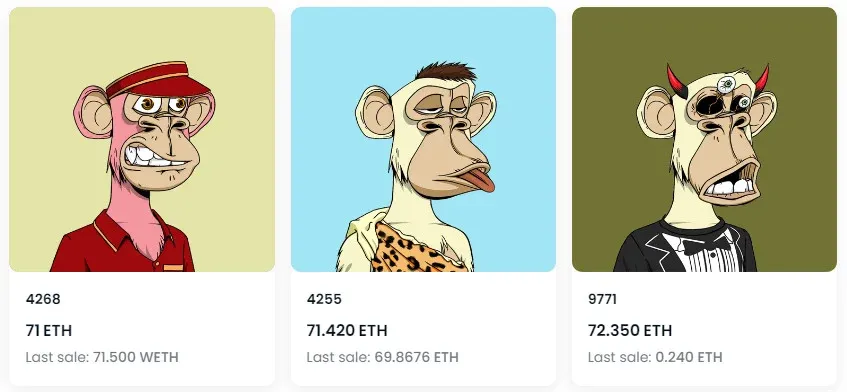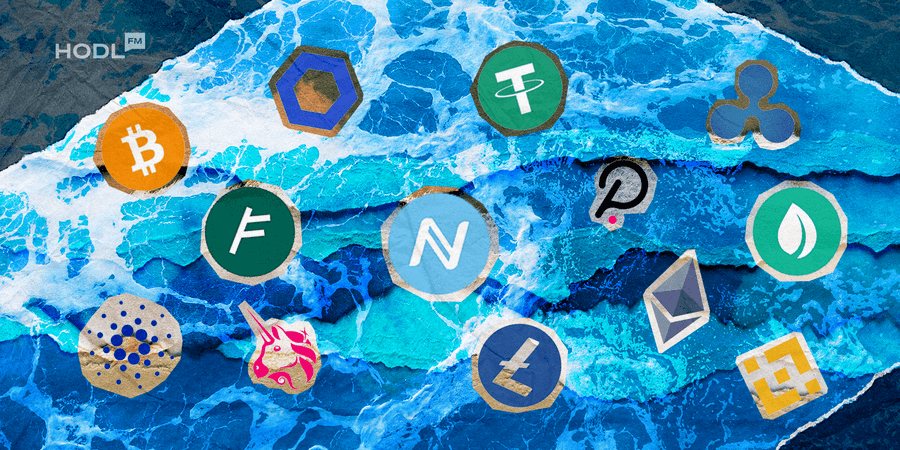Once upon a time, OpenSea was the pace-setter in the NFT market, the biggest marketplace for non-fungible tokens. At its peak in January 2022, OpenSea saw a trading volume of almost $5 billion with over 2.5 million NFTs sold in a single month.
Related: Full Overview of OpenSea NFT Marketplace
Everything was smooth sailing till trouble came knocking. First, it was a couple of internal scuffles. Then Blur came into the market with some serious competition. And more recently? The SEC decided to focus on NFTs, with OpenSea being one of the first targets.
But the sad part is that OpenSea had already lost major market share before Gary Gensler came knocking. So, what really contributed to OpenSea NFT marketplace challenges?
There’s a lot to cover regarding the rise and all of this NFT marketplace, and this article will do justice to that.
What is OpenSea and How Did It Start?
OpenSea is the first NFT (non-fungible token) marketplace, which is basically an online market where NFT buyers and sellers meet. This firm is a product of Y Combinator, the startup incubator that has launched some of the most successful 21st-century businesses, like Airbnb.
The OpenSea NFT marketplace is an idea that was conceived by Devin Finzer and Alex Atallah in 2017. 2017 was the period of the crypto craze, where everyone was trying to get on the hype of the blockchain industry.
During this time, Finzer and Atallah came up with the idea of storing data permanently on blockchains, but with an interesting twist to it. The data that was stored would be all different (non-fungible), unlike Bitcoin and other cryptocurrencies, which had multiple copies.
After graduating from their Y Combinator class, Finzer and Atallah received backing from investors like the Founders Fund and gathered $2 million for start-up funds. They were hyped, of course, looking forward to the different economies that could emerge from their idea.
How Did OpenSea Rise to Prominence?
Despite the anticipation after the startup kicked off, OpenSea wasn’t anything special three years into operation. Employees were less than 10, and by 2020, only a few hundred traders used the marketplace.
However, this didn’t matter much, as the users of the platform were people who truly loved this novel idea of NFTs. Although the money was slow in coming, everyone (founders, employers, and traders) was having fun.
All of this changed when Beeple (Mike Winkelmann) auctioned off an NFT worth $69 million on OpenSea in March 2021. This was the start of the OpenSea growth history, as the platform saw the value of NFTs being sold triple in value.

The good times just kept coming as Yuga Labs auctioned off a collection of 10,000 cartoon apes that people loved for some reason. Images of cars, crypto punks, and other crazy images changed hands, and OpenSea took its cut from each transaction. Business was so good that OpenSea’s revenue increased from $9 million in Q2 2021 to $186 million in Q4.

What Factors Contributed to OpenSea's Success?
OpenSea has always been known for its simplicity, as Finzer and Atallah created the platform with a vision of making NFTs user-friendly. This platform was also successful due to its lazy minting feature that made it easy for artists to sell their art. With lazy minting, artists could create a listing for their artwork without having to pay ETH gas fees.
More: How to Monetize Your Digital Art with NFTs. Guide
This platform also introduced the concept of NFT royalties, which finally allowed creators to truly earn from their hard work. This royalty gives the original NFT creators a cut every time their artwork is sold or resold on OpenSea. In a way, the OpenSea market impact was unshakeable in its prime because the NFT marketplace catered to the interests of the creators.
When Did OpenSea’s Troubles Begin?
Like all good things, OpenSea’s success wasn’t meant to last, as trouble came knocking. First, employees like the former Head of Product, Nate Chastain, became greedy and started flipping NFTs for profit.
Looking at @opensea´s fees and revenue, it becomes clear that the NFT marketplace has seen a downtrend since mid-2022.
— KAF (@kafcrypto) May 30, 2023
In March 2022, OpenSea saw revenues of $61.33 million; in March 2023, it had revenues of $172.33k. The drop represented a whopping 99.72% fall. pic.twitter.com/TVknDDustZ
That wasn’t the only cause of the OpenSea rise and fall, as increased user patronage meant website outages for the unprepared marketplace. There was also the rise of stolen and fraudulent NFT collections, which sparked user outrage.
To combat these OpenSea securities violations and properly manage the platform, management started hiring Big Tech staff and Ivy-league graduates. Of course, this led to dissent among the staff as promotions were effectively cut off with this move. Nonetheless, this move proved useful for a while, as OpenSea’s revenue reached $265 million in Q1 of 2022, an all-time high.
How Did Internal and External Issues Affect OpenSea?
Now, you might argue that the OpenSea workplace culture should make it a fun place, but that was before the massive hires. After that, the NFT marketplace became like any other soul-sucking corporate place, with employees as cogs in the wheel.
So, when the NFT boom started to wane, 20% of the staff got laid off. Many people who left complained of gender discrimination. However, OpenSea hired a third-party investigator for this, and the investigator later reported that the claims were unfounded.
Things became so bad that Atallah stepped back from active participation, though he chose to remain on board. Some OpenSea employees could even swear that the Finzer and Atallah were no longer seeing eye to eye.
How Did OpenSea Lose Market Share and Dominance?
The OpenSea NFT dominance started to wane with the fall of the NFT hype in 2022. This caused a total sales volume of about $6 billion in January 2022 to plummet to just barely above $1 billion in June 2022.
At the time, OpenSea kept most of its cash reserves in Ether, the native currency of the Ethereum platform. By June 2022, Ether’s price dropped by more than 75%, which meant that OpenSea’s funds were worth 75% less than before. Take note that this NFT marketplace recorded $171 million in revenue in Q2 2022, so a loss of $170.7 million is pretty bad.
However, life still had more lemons to throw in the mix, and this came as Blur, the new OpenSea competitor. Blur was founded by Pacman (real name: Tieshun Roquerre), another Y Combinator alum and an MIT dropout.
Pacman saw that OpenSea catered to the creator crowd and supported creativity. But there were traders on the platform who simply wanted to flip NFTs and rake in cash without paying creator royalties. So, Blur provided a platform for such traders to do so, with a promise of native cryptocurrency that favors power users.
By February 2023, Blue launched its new cryptocurrency, and the OpenSea market dominance went bye-bye. The new firm was raking in three times the monthly trading volume of OpenSea at the time.
On the other hand, OpenSea’s quarterly revenue dropped to $19 million in Q1 2023 from $23 million in Q4 2022. By May 2023, the NFT marketplace went through another round of layoffs.
In August 2023, OpenSea decided that it would stop enforcing creator royalties, sparking a lot of outrage. Amid the uproar, the United States Securities and Exchange Commission (SEC) came knocking, and the OpenSea legal trouble began.
More on Opensea SEC Investigation and Impending Lawsuit
After waging war on cryptocurrencies and exchanges, the SEC decided to turn its attention to NFTs. The first to receive the boot was the NFTs created by Impact Theory, which the SEC deemed to be unregistered securities.
Gary does it again. pic.twitter.com/YzvBtMc2pT
— Dan (@btc_dan) August 28, 2024
Some weeks after that, Stoner Cats 2 got the same treatment, and they had to pay a $1 million fine to cease and desist. The SEC OpenSea lawsuit started with the US security organization issuing the NFT marketplace third-party subpoenas. Simply put, they asked for mandatory information on other non-fungible token firms.
Shortly after that, OpenSea received a Wells notice from the SEC, showing that the platform could be subject to pending litigation.
OpenSea has received a Wells notice from the SEC threatening to sue us because they believe NFTs on our platform are securities.
— Devin Finzer (dfinzer.eth) (@dfinzer) August 28, 2024
We're shocked the SEC would make such a sweeping move against creators and artists. But we're ready to stand up and fight.
Cryptocurrencies have long…
The SEC investigation of OpenSea probably stirred up a hornet’s nest as the Australian Taxation Office (ATO) also met the platform regarding tax issues.
How Has OpenSea Responded to the SEC Investigation?
The legal team behind OpenSea argued that NFTs are not securities and that OpenSea was not a broker or exchange. They also said that the NFT marketplace was protected by Section 230 of the Communications Decency Act and the First Amendment. As such, the marketplace can’t be held responsible for the third-party content on their platform.
OpenSea has received a Wells notice from the SEC.
— OpenSea (@opensea) August 28, 2024
We're shocked that the SEC would make a move that threatens creators and artists, and we're ready to stand up and fight for our industry. https://t.co/7FyFH3NLdm
Amid the NFT marketplace legal issues, OpenSea went on to spread a vocabulary guide among its staff. Words like ‘trader’, ‘trading’, ‘exchange’, ‘broker’, and ‘shares’ could not be used to talk about OpenSea.
How Does OpenSea Compare to Its Competitors Today?
The OpenSea NFT marketplace competition didn’t stop at Blur, as Magic Eden (from Yuga Labs) came into the mix. Where Blur attracted OpenSea’s traders, Magic Eden came for the creators on the platform.
The modern NFT market doesn’t just cater to the lovers of fun crypto collectibles anymore. Rather, it mostly caters to traders who are looking for a quick buck, and OpenSea doesn’t offer much in the way of this. Its simplistic marketplace is now losing its allure to the modern NFT trader, making it go for Blur, Magic Eden, and other alternatives.
What Does the Future Hold for OpenSea?
Finzer, the one-man army, has been pushing the idea of OpenSea 2.0, making the platform a portal to Web3. In his words, this would push OpenSea from a position of following to one of leading. So, for OpenSea’s future outlook, the platform would rebrand as an aggregator of blockchains, protocols, marketplaces, tokens, and all kinds of liquidities.
Despite the SEC NFT regulation issues, NFTs still hold some promise. They can be used as tokens for live events and representations of ownership of various items, including video game characters.

Disclaimer: All materials on this site are for informational purposes only. None of the material should be interpreted as investment advice. Please note that despite the nature of much of the material created and hosted on this website, HODL FM is not a financial reference resource and the opinions of authors and other contributors are their own and should not be taken as financial advice. If you require advice of this sort, HODL FM strongly recommends contacting a qualified industry professional.





